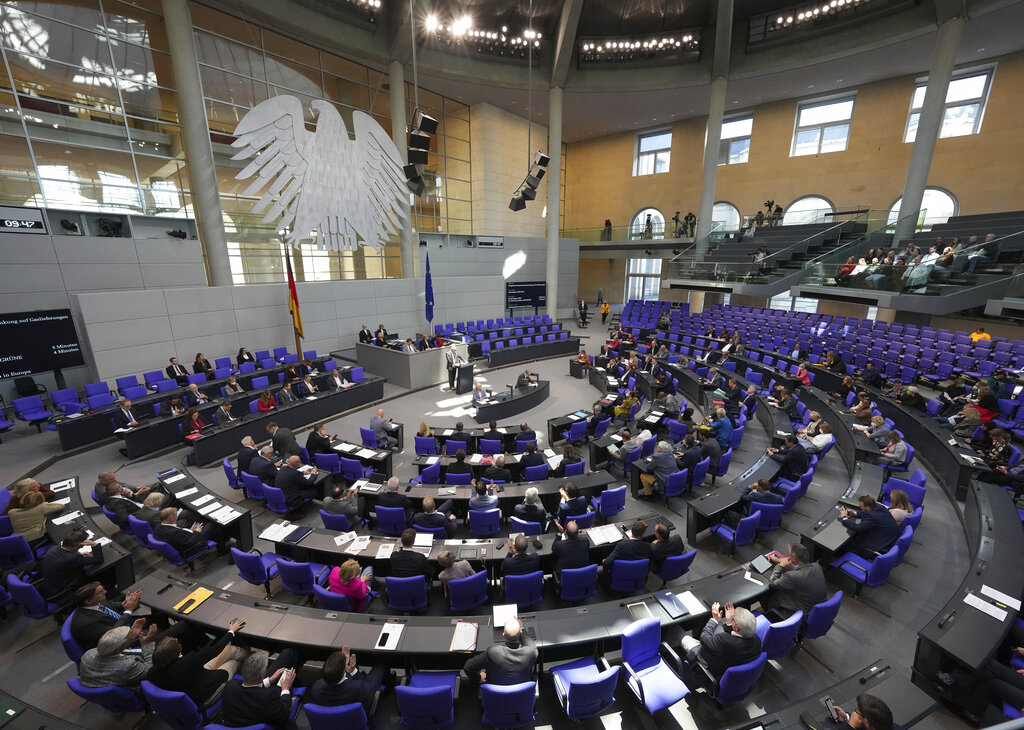Based on a new electoral reform act being pushed by Germany’s left-wing Social Democrats (SPD), the two biggest opposition parties in Germany, the Christian Democratic Union (CDU) and Alternative for Germany (AfD), may be disqualified from even running their candidates for office.
Germany’s Bundestag president is calling for a radical “woke” electoral reform act that would require 50 percent of party list candidates to be female. In Germany’s election system, voters vote for a party, but the party chooses the candidates in a list format. For parties like the CDU/CSU, this list currently includes 141 men and 46 women, while for the AfD, it includes 72 men and 11 women.
The new reform would be a major hit against conservatives, who tend to field more male candidates. The reform could also dramatically reshape elections by simply disqualifying conservative parties from even running, or at the very least, make it difficult for them to field candidates.
[pp id=61957]
Germany has just concluded changing its election law to reduce the number of MPs and also change its system of entering parliament based on “direct mandates.” Previously, parties that received three direct mandates could enter parliament even if they scored below 5 percent. Now, the law, for example, is set to disadvantage a number of parties, including the anti-establishment Left Party, as well as the Christian Socialist Union (CSU), which performs well in Bavaria but has no real presence elsewhere in the country.
Bundestag President Bärbel Bas (SPD), who is pushing for the new “woke” election reform, also wants to lower the voting age to 16.
[pp id=35668]
She says it is her wish “to put together a package on voting rights in this election period,” she told Deutschlandfunk. She is also calling for “an extension of the legislative period from four to five years.”
Essentially, that would allow parties to hold power for five years instead of the current four years, making elections less frequent and giving Germans fewer opportunities to vote out governments.
Bas hopes “that we will also reach a decision on this by the end of the legislative period.” The dispute, however, “will still be complicated,” she said. Furthermore, as Remix News previously reported, similar female quotas had been struck down as unconstitutional by courts in Brandenburg and Thuringia following complaints from the AfD party.
[pp id=63041]
It should be noted that Bas’ party, the SPD, had pledged a government cabinet of 50 percent women and 50 percent men. However, the country’s former defense minister, Christine Lambrecht, proved to be hugely unpopular in the country, which resulted in Chancellor Olaf Scholz, also from the SPD, replacing her with Boris Pistorius. Although the move was sharply criticized by the left, Pistorius has proven to be far more popular up until now.






